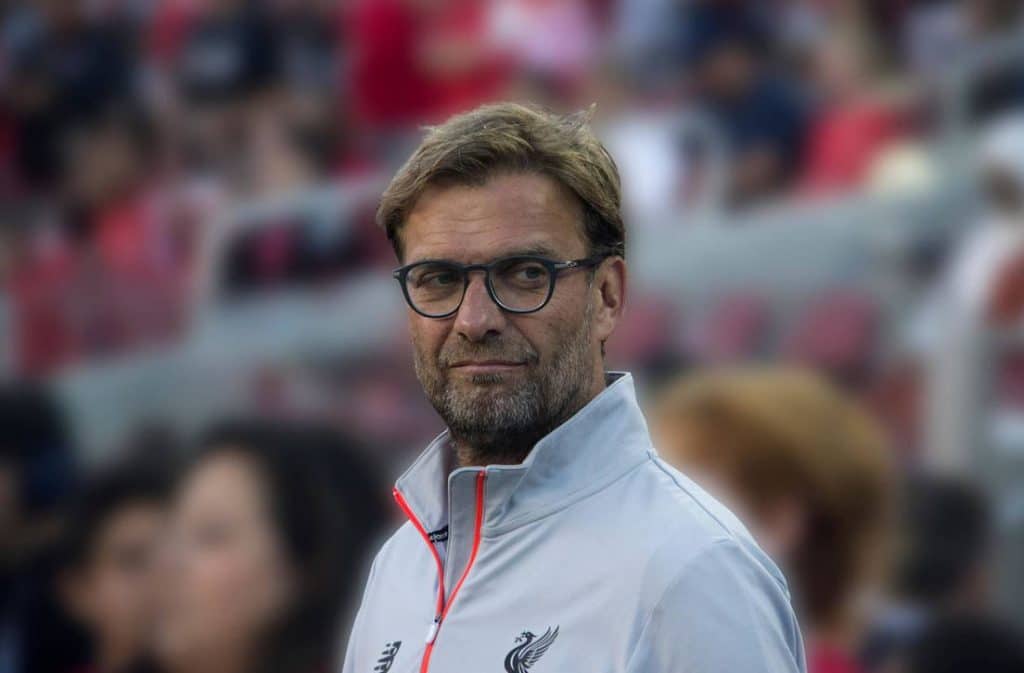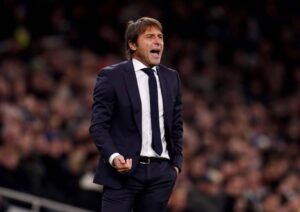
While the position of Liverpool as one of the leading sides in Europe is largely taken for granted amid so much success under Jurgen Klopp, it really shouldn’t be.
Clearly, few clubs can match them for history and tradition but, at the very top level, Liverpool just do not have the funds those who wish to be as good as them boast. That’s not to say there isn’t money to spend of course, it’s just that when rivals are backed by nations, even a billionaire looks a pauper.
Largely, their success has been built on smart signings and riding momentum. A reductive appraisal, perhaps, but Klopp’s greatest strength has been in his harnessing of the power of the Anfield crowd.
Indeed, it’s hard to ever imagine Liverpool being able to have the kind of summer spending spree Manchester City embarked on in 2017, Chelsea in 2020 or Manchester United in 2021.
That, then, led to all sorts of debate as to what would happen when this team, one that has conquered Europe and then England, came towards the end of their cycle. Without prior planning, replacing them all at once just looked beyond Liverpool’s means.
Quietly, Klopp and the recruitment team have worked around that. While it’s important to state that there is no guarantee these players will go on to match the heights of the current squad, the likes of Diogo Jota, Harvey Elliott, Ibrahima Konate, Kostas Tskimas and now Luiz Diaz offer hope of an equally competitive future.
At some point, Sadio Mane and Roberto Firmino will have to move on. Mohamed Salah, meanwhile, is a different case given he only looks to be getting better, although there are even question marks over his long-term future.
Virgil van Dijk and Jordan Henderson are also the wrong side of 30, meaning much of the core of the great Klopp team will naturally slow down in the coming years. Again, that is not to say things are imminent and that these players cannot continue to perform well deep into their 30s, it’s just that time stops for no one.
To regenerate slowly, mixing the future with the past in the present, seems like the wisest move Liverpool can make. An evolution rather than a revolution.
To do that, a manager needs a certain kind of gravitas. As squads get bigger, players will find game time harder to come by, potentially causing problems behind the scenes. In Klopp, however, Liverpool have a coach of such aura that even those frustrations look menial at most.
Klopp himself is reportedly due to leave in 2024, potentially paving the way for Steven Gerrard. Obviously, so much can change between now and then, although whoever takes over from Klopp knows they will not be walking into a crumbling empire.
Should the club’s quiet rebuild continue, there will be no kind of standing start. The next manager, whoever they may be, will be afforded the tools to hit the ground running, something so important when going up against teams backed by countries and beyond.
When Graeme Souness succeeded Kenny Dalglish in 1991, the winning machine of the 1970s and 1980s was on its last legs and the rebuild took too long to do. Ultimately, that led to one of the leanest periods in the club’s history, allowing bitter rivals Manchester United to overtake Liverpool at the top of the English game.
Their decision to rebuild while running must surely be an attempt to right such wrongs. That cannot happen again. If Klopp can leave Liverpool in a better place than he found it, it could be one of his greatest achievements at Anfield.
You could earn up to £10 (or currency equivalent) in bonus funds by joining Colossus with our New Player Bonus. Click here to join the action.
The post Liverpool rebuild could define Klopp’s legacy appeared first on Colossus Blog.
- "
- 1980s
- 2020
- 2021
- Action
- All
- Allowing
- around
- behind the scenes
- bonus
- case
- change
- City
- coming
- Competitive
- continue
- countries
- Currency
- Current
- debate
- different
- down
- England
- English
- Europe
- evolution
- First
- Frustrations
- funds
- future
- game
- good
- great
- here
- history
- HTTPS
- important
- IT
- join
- leading
- Led
- Level
- liverpool
- Long
- looked
- machine
- manchester
- Match
- May
- Momentum
- money
- move
- offer
- planning
- player
- players
- power
- present
- recruitment
- revolution
- rivals
- running
- s
- smart
- So
- spend
- Spending
- start
- State
- success
- summer
- The
- time
- tools
- top
- United
- walking
- What
- WHO
- winning
- years











